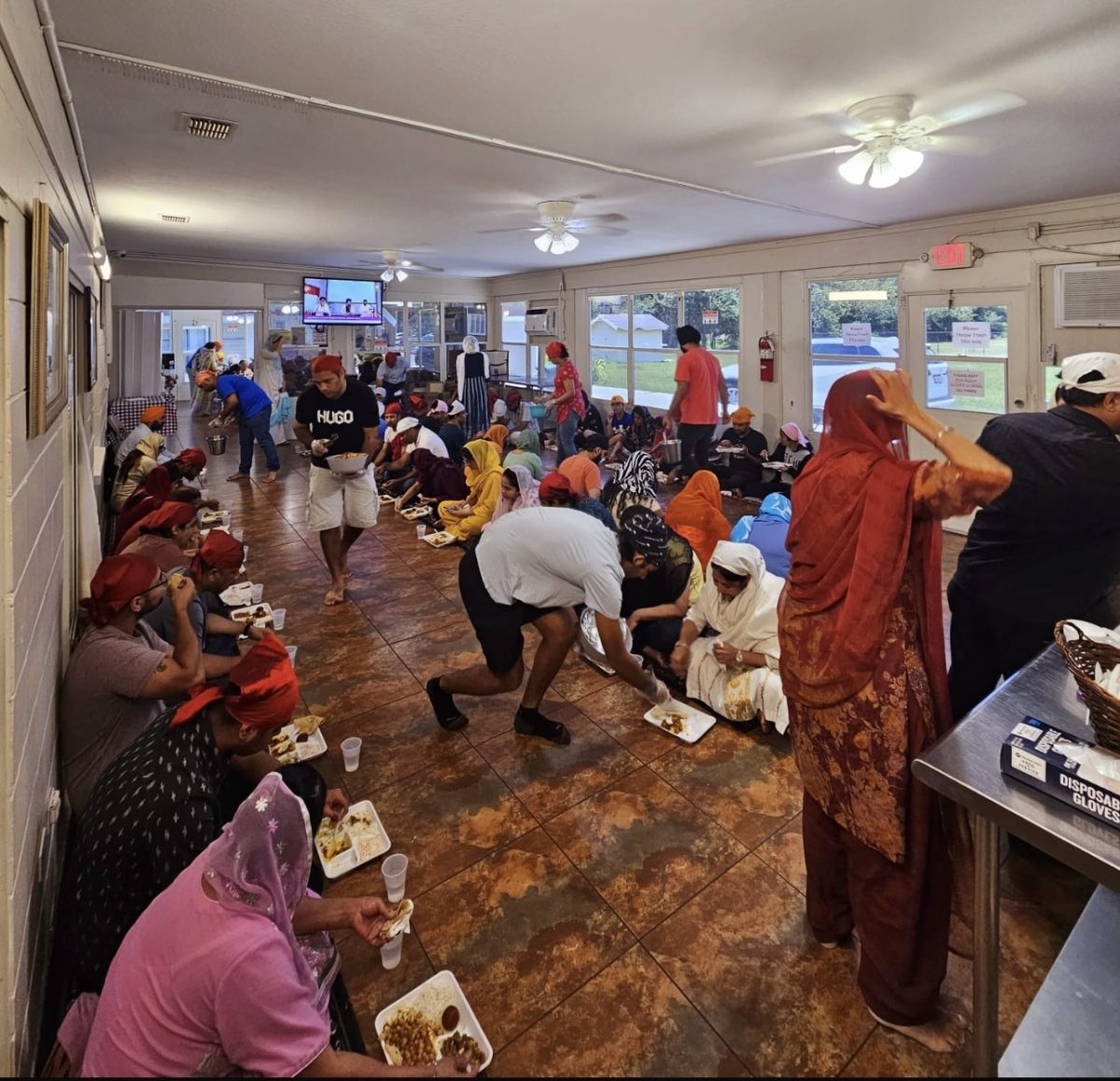With approximately 26 million followers worldwide, Sikhism is recognized as the fifth-largest religion in the world. Beyond being a mere means of sustenance, food in Sikhism holds deep spiritual and social significance, serving as a powerful symbol of equality, community, and selfless service.
This profound philosophy is beautifully embodied in the tradition of Langar—a free community kitchen that operates in every Gurudwara (Sikh place of worship), providing nourishing meals to all, regardless of gender, ethnicity, race, or social status. Langar is more than just a meal; it is an expression of the core Sikh values of humility and generosity. “As a child, my parents would always take me to the Gurdwara to serve Langar and I feel that it made me humbler,” said freshman Vera Suri.
The origins of Langar can be traced back to the late 1400s and the founder of Sikhism, Guru Nanak Dev Ji. According to Sikh tradition, as a young boy, Guru Nanak Dev Ji was once entrusted with money by his father to purchase household goods. However, instead of making the intended purchases, he used the money to buy food and feed the hungry saints he encountered. When questioned about his actions, he explained that this was the truest form of investment—a deed that served humanity. From that moment, the spirit of Langar was born, symbolizing an unending flow of nourishment and compassion. To this day, no one is ever turned away hungry from a Gurudwara, no matter what time or day it is, ensuring that this sacred tradition continues to fulfill its purpose.
The operation of Langar is sustained through the selfless contributions of the Sikh community. “Every Sunday, I volunteer at the Gurdwara to serve langar,” said Suri. Devotees donate food, raw materials, and other essentials for the preparation of meals, reinforcing the Sikh ethos of collective welfare and service.
A traditional Langar meal is simple yet wholesome and nutritious. The menu typically includes dal (Indian lentils), roti (flatbread), rice, a vegetable dish, and Indian pickles. The food is always vegetarian, ensuring that it is accessible and acceptable to people of all dietary and cultural backgrounds.
The institution of Langar stands as a testament to Sikhism’s unwavering dedication to social justice, hospitality, and unconditional service to humanity. It is not merely a practice but a living tradition that continues to inspire millions.









































